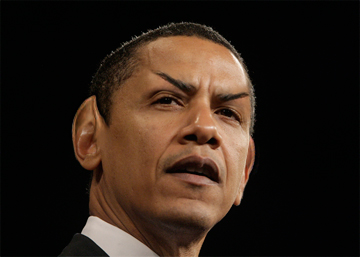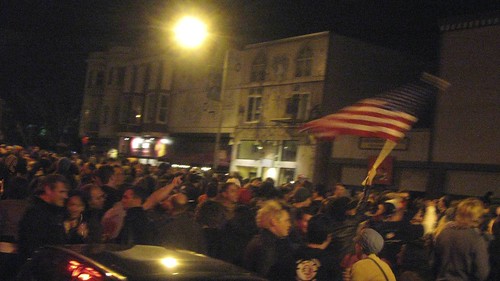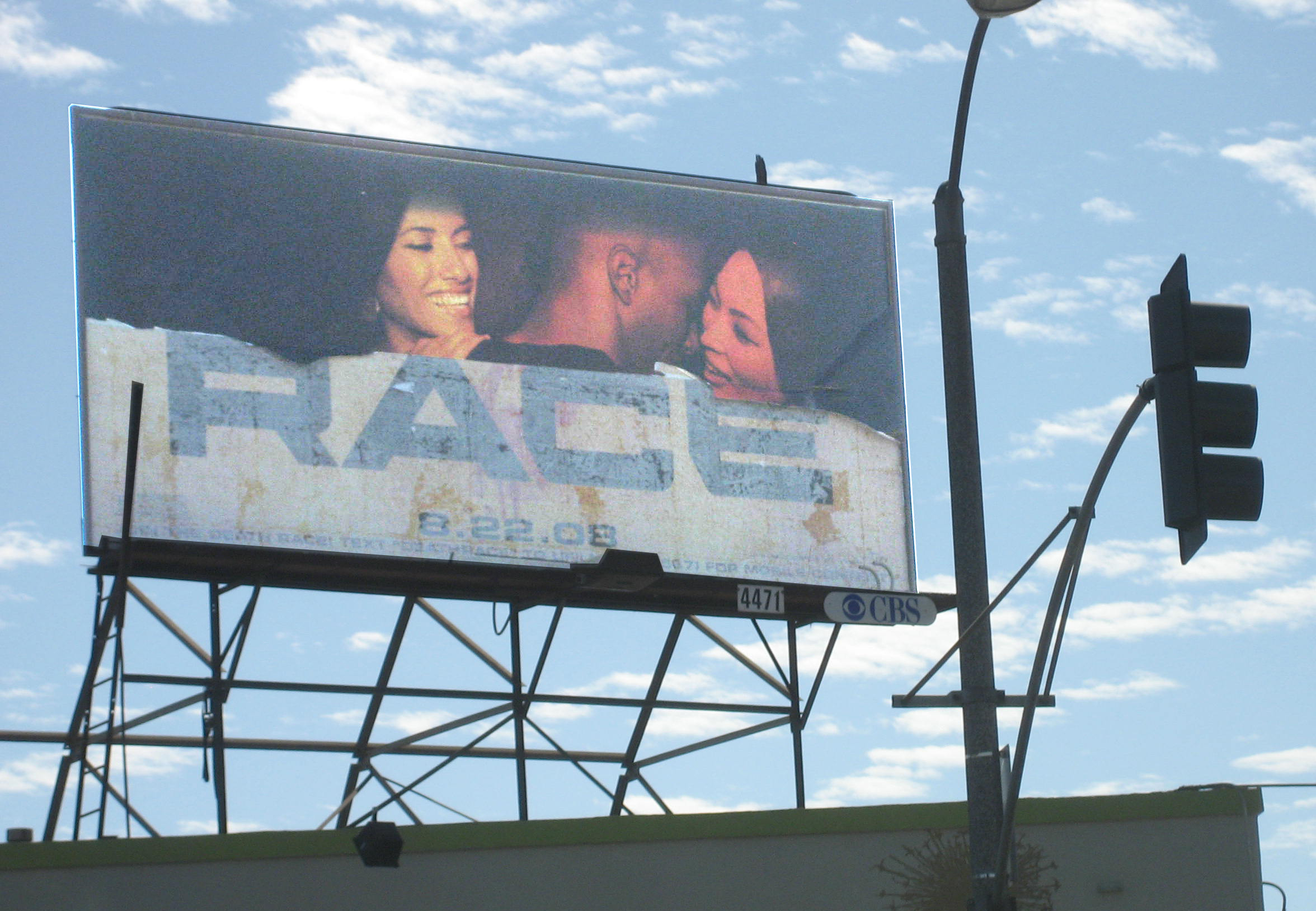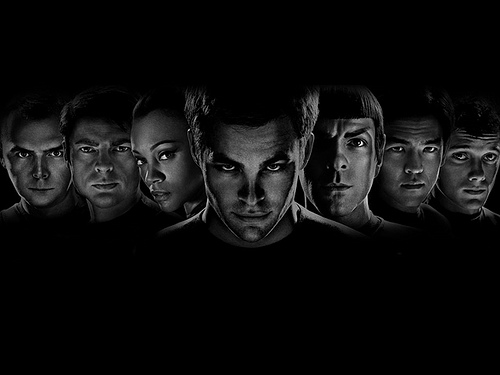
It first occurred to me as I was watching the trailer for Star Trek: First Contact, back in March. The cast seemed so typical of the racial and ethnic diversity reflected in the TV shows we’ve all been watching for years now, like Lost…
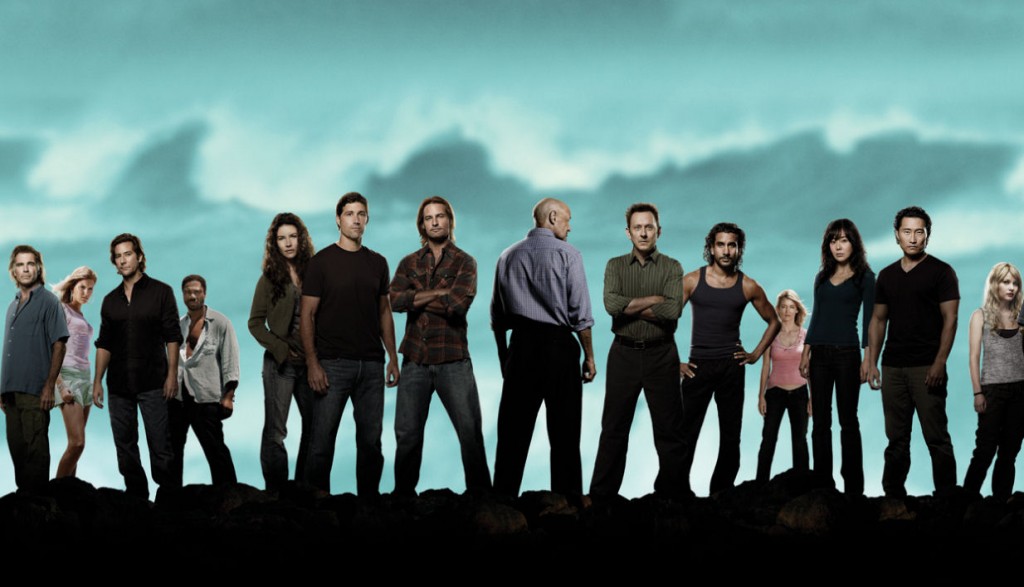
and Heroes…

It seemed completely natural for 2009, and yet what occurred to me was that this movie was based on a TV show that was decades old–I wasn’t even entirely sure how many. Thirty? Forty? When I looked it up, I discovered that the original Star Trek series had first aired in 1966!
This seemed utterly amazing.
The Civil Rights Act of 1964, which outlawed racial segregation in schools, public places, and employment, had passed just TWO YEARS prior. Bussing (to desegregate schools in reality vs. just in legislation) wouldn’t even begin until 1971. Had it lasted, Star Trek would have been in its 5th season by then. More than a decade after the show premiered, the reality of the social response to racial desegregation all too often still looked like this:
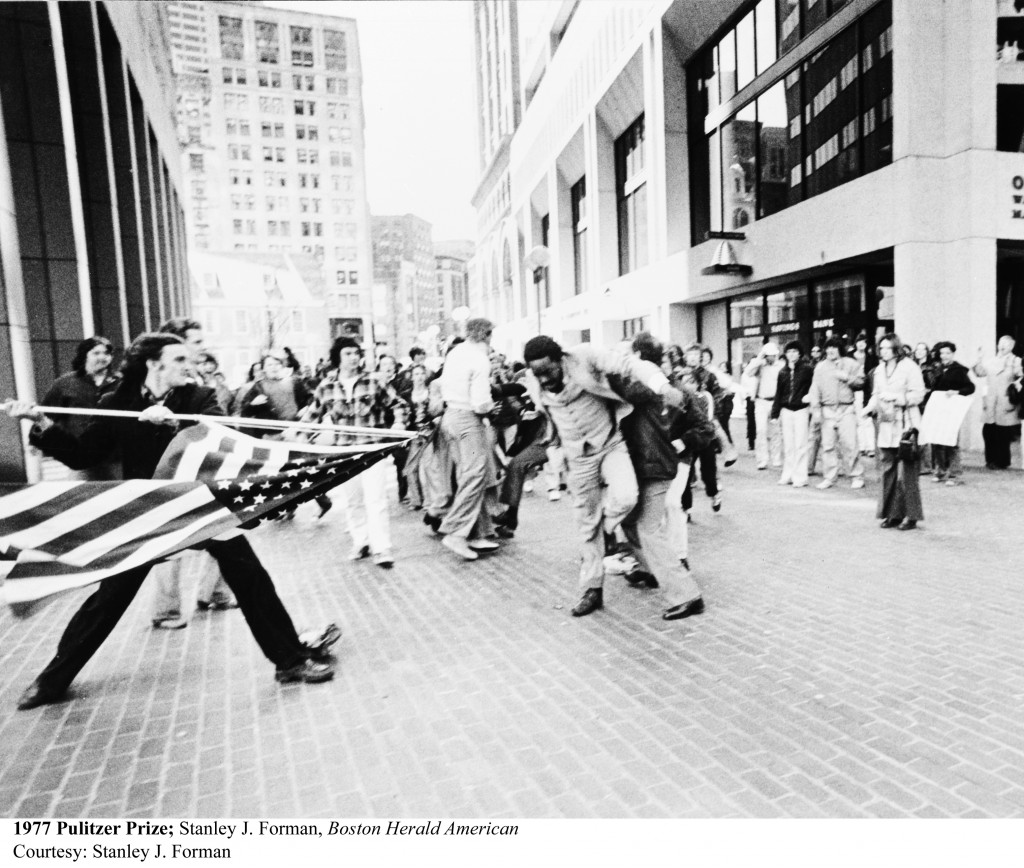
The cultural conflicts that raged in the 1960’s extended beyond racial divides, beyond even national boundaries, into outer space itself. When Star Trek first aired–nine years after the Russians had been the first to launch human beings outside of the Earth’s atmosphere, and still three years before Americans would first land on the moon–the Space Race between the Americans and the Soviets was an integral part of the cultural, technological, and ideological rivalry that defined the Cold War. After all, advanced space technology was more than simply a pissing contest, it had blatant military applications for the two adversarial nations, should the Cold War actually heat up.
But just three years after Martin Luther King had described his dream of a future where blacks and whites, and all races, could coexist harmoniously as equals, Gene Roddenberry’s futuristic vision, that beamed into living rooms all across America, looked like this:
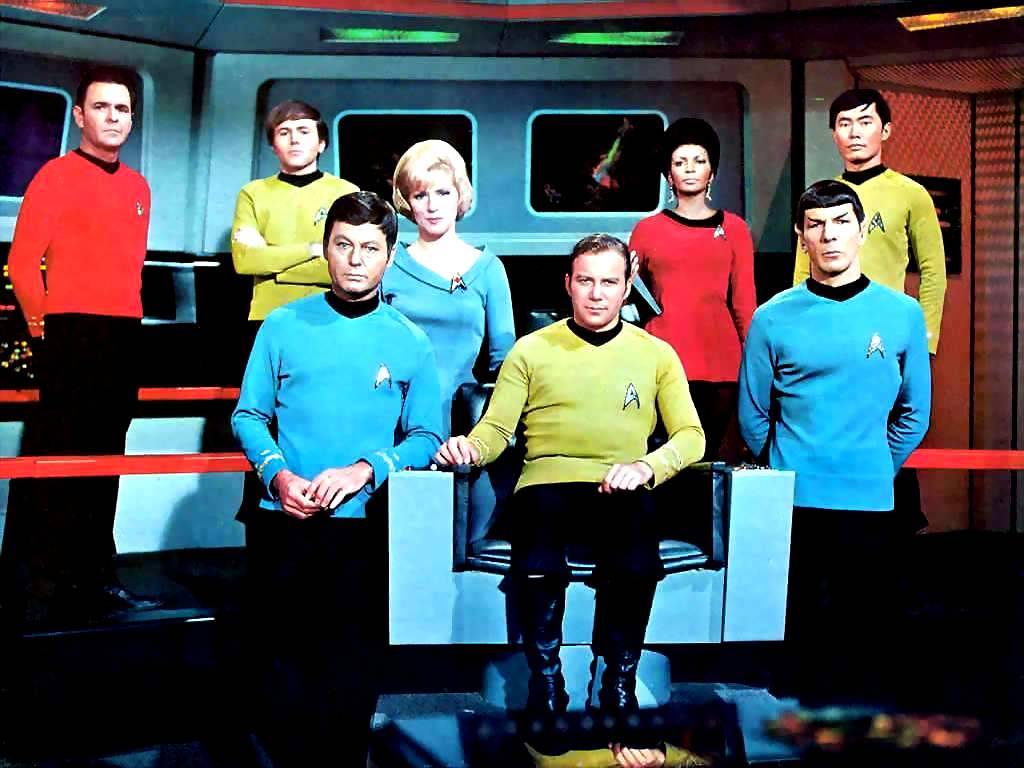
…and it included an American, a Russian, an Asian, a Black woman, and even a biracial (bi-special?) alien all working together for the purpose of scientific exploration and peacekeeping efforts.
To put how insanely revolutionary this really was in 1966 into more perspective–since I’d only seen the episodes as reruns when I was a kid in the 90’s–Nichelle Nichols, who played Uhura, was one of the first black women featured in a major television series who was not playing a servant EVER. Her prominent supporting role as a female black bridge officer was unprecedented in the history of television at the time. In a recent interview in Hyphen Magazine, John Cho, who plays Sulu in the new Star Trek movie, described the experience of watching George Takei embody the role in the original series: “It was stunning. He was just alone on television as an Asian American.” And as for the idea of a half-human/half-Vulcan hyphenate…. when Star Trek first aired, interracial marriage was still illegal in 16 states! It wouldn’t be until a year later, in 1967, that these “Anti-Miscegenation” laws would be declared unconstitutional.
At the end of Star Trek’s first season, Nichelle Nichols says she’d wanted to leave the show. Gene Roddenberry urged her to reconsider, but she told him she was planning to return to theater. That same weekend, at an NAACP event Nichols was introduced to Martin Luther King, Jr. He told her he was a fan, and praised the importance of her role in the show as it was part of the first fully integrated cast that portrayed men and women as equals. Star Trek, it turned out, was one of the only shows his children were allowed to watch. When she told him she was planning to leave, he replied, “You can’t do that! Your character is the first non-stereotypical [Black] role on television, and is in a position of authority. People who don’t look like us, see us for the first time as we should be seen: As equals. Don’t you see? Star Trek has changed the face of Television.” Needless to say, Nichols told Roddenberry she would stay on the show.
What’s fascinating to me is that what Star Trek did, with its deliberate emphasis on diversity and equality, was not only change the face of Television, but, in fact, shape a cultural vision of what the future would be expected to look like, in its own image. “I am a first-generation ‘Star Trek’ fan,” declared Henry Jenkins, author of Convergence Culture, and co-director of the MIT comparative media studies program, in a recent Salon article entitled, Obama Is Spock: It’s Quite Logical. “And I’ve long argued that many of my deepest political convictions emerged from my experience of watching the program as a young man growing up in Atlanta during the civil rights era. In many ways, my commitment to social justice was shaped in reality by Martin Luther King and in fantasy by ‘Star Trek.’”
Premiering five years before the first pocket calculator, the Star Trek world wasn’t simply a glittering science fiction, it actually primed a whole generation to demand that the future keep its promises.
